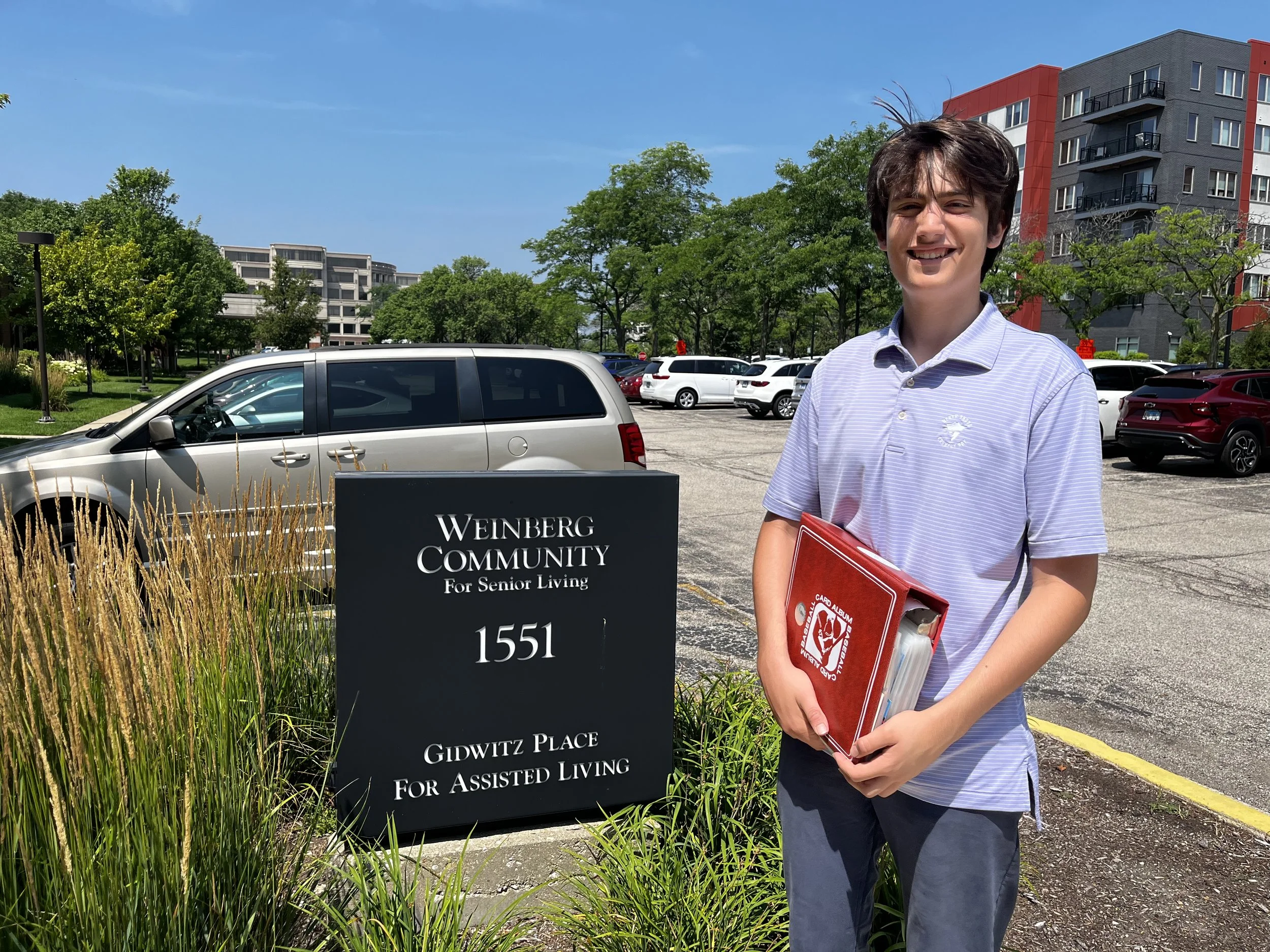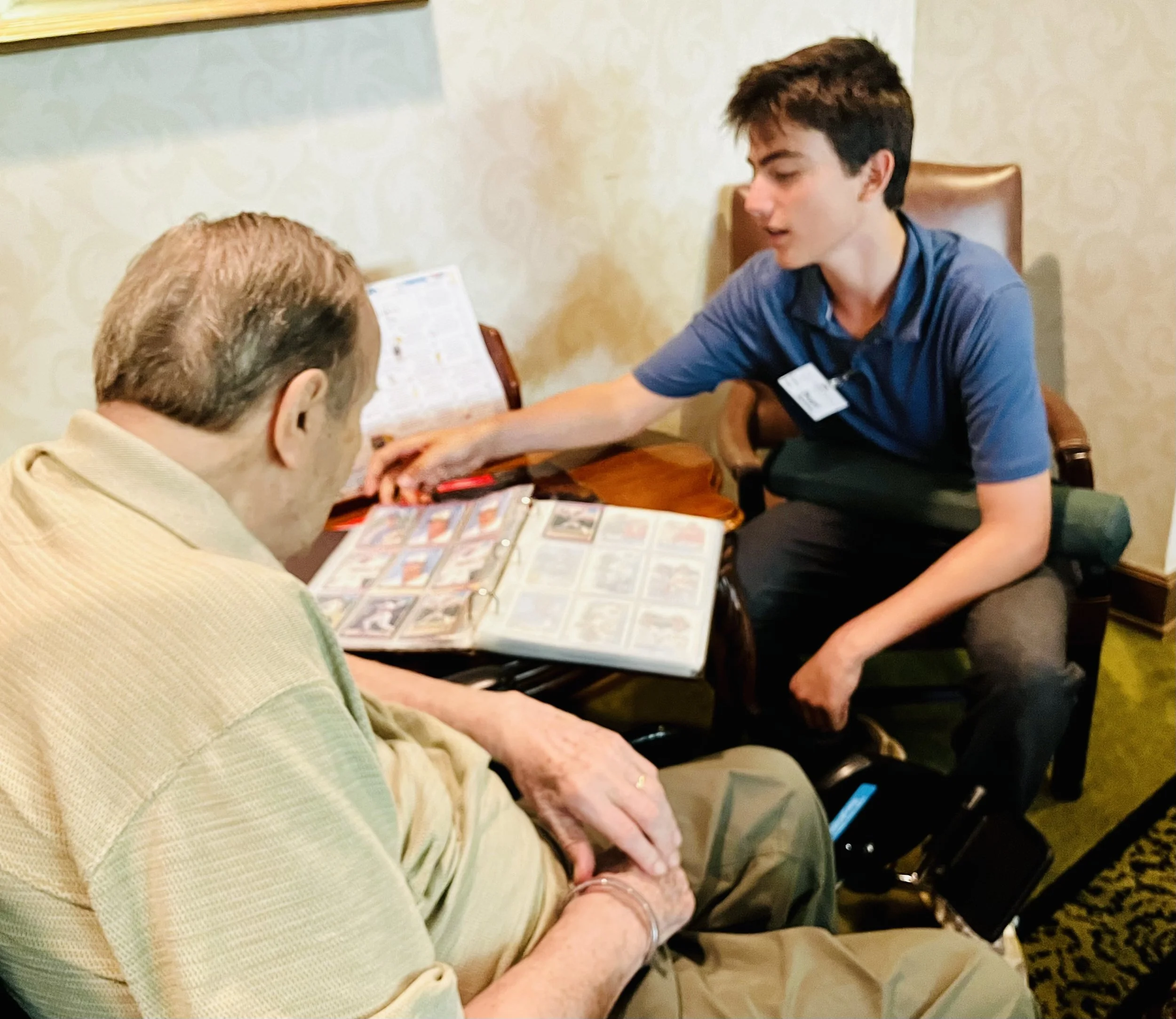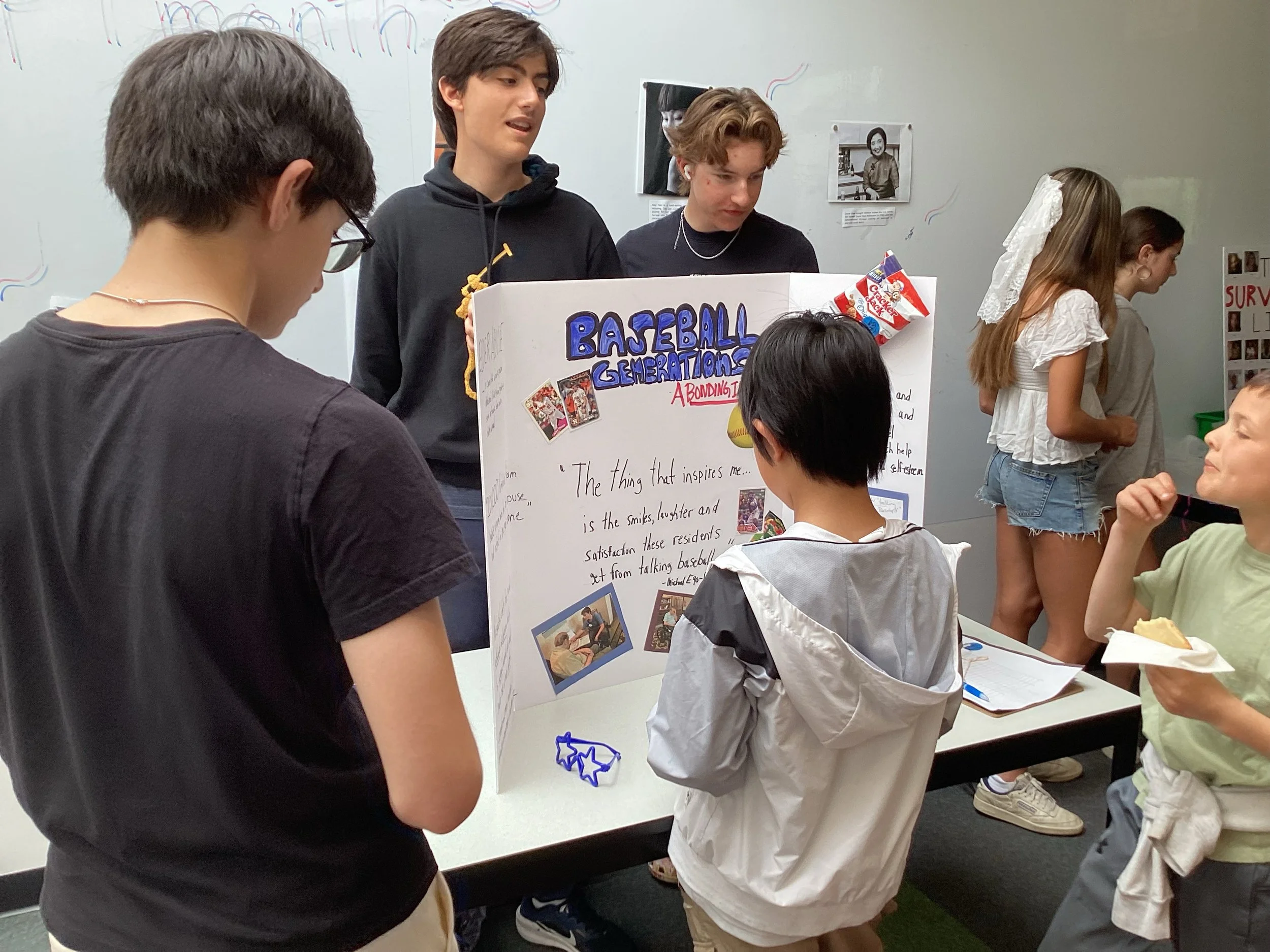
Baseball storytelling helps senior citizens reconnect with the rhythms of life
through the rhythms of the game
The Beginning of Baseball Generations
My grandpa and I have been watching the Chicago Cubs since I was a little boy. When the team won the World Series in 2016, I was just 7 years old.
A Family Affair In Jeopardy Gives Rise To An Idea
Baseball has always been a family affair for me. My parents, sister, and grandparents always watch me play.
When my grandpa was in the hospital, he couldn’t come to my games anymore. Even when he got out of the hospital, it was clear that he wasn’t himself. He had suffered from hospital delirium and would need months to recover.
I started researching hospital delirium and elder care generally. One of the things I learned about was the benefits of storytelling for older people—emotionally, cognitively, and socially.
Baseball has a unique power—its traditions and stories run deep in our culture, carrying cherished memories and connections across generations.
Baseball Generations is Born
Armed with the knowledge that sharing stories about baseball with senior citizens could have cognitive, psychological, and emotional benefits, I started visiting elder care facilities in 2024.
I named my community service movement Baseball Generations to signify how baseball storytelling can be bridge to memory, identify, healing, and connection across generations.
This gentleman played minor league baseball, and his favorite player was Lou Gehrig, the original iron man.
Baseball Generations Continues
We talked about the Black Sox game fixing scandal from 1919 and how it compared to the Houston Astros sign stealing scandal from 2019.
Baseball Generations Grows
During freshman year of high school, I started to grow the Baseball Generations movement, recruiting my teammates and other students to participate.





